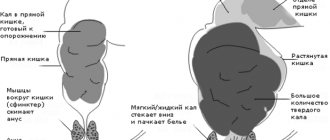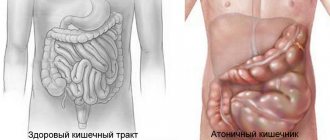Loss of appetite and nausea are symptoms that are closely related to each other. Nausea often leads to loss of appetite, and not eating enough can cause nausea. Both problems can develop under the influence of a number of medical conditions. Some of these conditions require the help of doctors, others go away relatively quickly with proper care at home.
Nausea is a feeling that, when intensified, can lead to vomiting. Other associated symptoms of nausea include dizziness, difficulty swallowing, excessive saliva production, and clammy skin.
In medical practice, deterioration of appetite means periodic or constant lack of hunger. A person may completely lose interest in food or not want to eat enough of it. Loss of appetite is often a temporary problem, but if it occurs over a long period of time, it can lead to weight loss, fatigue and dehydration.
Nausea and loss of appetite may develop due to medical conditions or their treatment. In some cases, these symptoms may be food-related and may occur due to food poisoning or allergies, for example. Sometimes loss of appetite and nausea are the result of excessive exercise or psychological problems such as stress.
Food poisoning
Nausea and loss of appetite are common signs of food poisoning.
Bacteria and viruses can contaminate food and cause food poisoning. Common symptoms of this condition include nausea and loss of appetite, as well as abdominal cramps, fever, vomiting and diarrhea.
Food poisoning that is not severe can usually be treated well at home. Doctors even recommend this treatment because the infection can be transmitted to other people on the way to the hospital or directly in the hospital.
In case of poisoning, replacement of missing fluids is important. That is, people should drink significant amounts of water and use oral rehydration solutions if vomiting and diarrhea are severe. Rest and gradual introduction of light foods such as rice into the diet are measures that help speed up the body's recovery.
In case of food poisoning, you should consult a doctor if:
- high body temperature develops;
- there is blood in the stool;
- signs of dehydration appear;
- diarrhea lasts 3 days or longer.
Food allergies
Allergic reactions to certain foods can cause nausea, which often precedes abdominal cramps and vomiting. Other symptoms of an allergic reaction to food include watery eyes, sneezing, itchy skin, hives and swelling. All these problems arise soon after eating.
If a person suspects that he has a food allergy, he can contact an immunologist - a doctor who can perform diagnostics and give useful advice. It is important to avoid consuming foods that cause allergies and to be careful when purchasing and consuming food outside of your own home.
Some people have severe allergic reactions, so doctors recommend that they carry epinephrine auto-injectors with them at all times.
Refusal to eat with dementia
Dementia is a form of acquired senile dementia. The condition is characterized by weakening of memory and brain activity, disorders of the speech apparatus, and motor system.
In the later stages of dementia, swallowing function is impaired. The patient loses his appetite and becomes passive. Relatives have to force feed the elderly person with the help of a spoon and sippy cup.
Feeding rules for dementia:
- Maintain your daily fluid intake. A pensioner needs 1.5 liters of liquid: water, green or black tea, compote, broth. For patients who cannot be given anything to drink, the doctor prescribes drips;
- Let's have sweet dishes. With advanced dementia, a person ceases to distinguish between bitter, salty, and sour tastes. The last thing to die is the ability to taste sweet foods. Use this to awaken the patient’s appetite for food; add fruits, sweet puddings, and berry purees to the menu;
- Weight control. Weighing is necessary to maintain a stable body weight of the patient. For old people who are rapidly losing weight, the doctor prescribes a special high-calorie diet. If the patient is immobilized, weighing can be replaced by regular measurements of body volumes;
- Old people who cannot chew on their own are prescribed a porridge diet. Their diet consists of liquid puree soups, softened fruits and vegetables.
In the extreme stage of dementia, the patient loses the ability to swallow food and begins to choke on nutritional mixtures. Unfortunately, this condition often precedes the death of the patient.
In a critical situation, it is possible to organize enteral nutrition - feeding food through an opening in the stomach. Relatives independently decide on the appropriateness of this method, based on the patient’s condition and possible risks.
Medicines
Loss of appetite and nausea can be side effects of some medications. These drugs include the following:
| Nausea | Decreased appetite |
| antidepressants | chemotherapy drugs |
| antiretroviral drugs | medications for the treatment of attention deficit hyperactivity disorder (ADHD) |
| antibiotics | antibiotics |
| drugs to normalize blood pressure |
Nausea can be avoided by taking medications with small meals. In addition, you can take the drugs at night and thus experience side effects while you sleep. Lying down increases the risk of nausea, so use pillows under your upper body to reduce the risk.
If medication-related nausea and loss of appetite occur regularly and interfere with daily activities, you should consult a doctor who can adjust the dosage or prescribe alternative medications.
Treatment for decreased appetite in older people
If you want to know how to increase appetite in an elderly person, the answer can only be obtained after the main reason that caused the decrease or complete loss of interest in food has been established.
The best option is to undergo a comprehensive medical examination. But given the patient’s age, we can limit ourselves to a minimum number of diagnostic procedures.
These include:
- detailed blood test;
- complete urine examination;
- Ultrasound of the abdominal cavity, thyroid gland;
- fluoroscopy and gastroscopy of the gastrointestinal tract;
- Magnetic resonance imaging.
Based on the results of the procedures performed, further treatment is prescribed. Depending on the disease, the elderly patient is offered various medications: antibiotics, insulin, drugs for the treatment of the cardiovascular system, hormone replacement therapy. If everything was done correctly, your appetite returns to normal.
When loss of interest in food threatens not only the health, but also the life of an elderly patient, the doctor prescribes special stimulants for the elderly person’s appetite.
These may be iron-containing drugs, anabolic steroids, pharmaceutical bitters, dopamine blockers and digestive activity regulators, as well as some dietary supplements.
It is prohibited to take these medications without a doctor's prescription - side effects may occur. Not always, but it happens that to increase the appetite and vitality of an elderly person, surgery or chemotherapy is necessary.
Impaired appetite in a state of depression or with mental disorders is treated simultaneously with the effect on the nervous system with antidepressants, sedatives and stimulants. Non-traditional methods of restoring the need for food include physiotherapy using the latest equipment, hypnosis, and acupuncture.
To support the life of an elderly person who is unable to eat on his own (which is quite common with senile dementia), nutritional formulas are introduced into the body using a gastronomic tube.
If physical condition allows, then older patients are recommended to walk in the fresh air and light physical activity.
Psychological reasons
Both nausea and decreased appetite can be associated with psychological problems such as stress and anxiety. People who face severe stress and anxiety may lose their appetite.
Nausea often occurs with an anxiety disorder. Other symptoms of this condition include shaking, sweating, rapid heartbeat and difficulty breathing.
Treatment for anxiety involves psychotherapy and medications.
If your child doesn't eat well
As a rule, the main reason why a child has no appetite is a violation of the usual diet. Juices, water or tea before meals fill the volume of the small stomach, thus causing refusal to eat. Naturally, any colds, runny nose, or otitis media worsen the condition of children. It’s hard for them to breathe, the body throws all its strength into fighting the disease. In this case, you can also observe a deterioration in appetite. When teething, you also shouldn’t expect your baby to eat in the usual portions. By the way, young children are especially sensitive to weather changes. This also leaves its mark on appetite. But all these conditions are physiological; there is no point in worrying too much. Older children may refuse food due to their emotional state (resentment, fear, irritation). Under no circumstances should you force feed your baby. This will only make the problem worse. As a result, just the thought of food will cause disgust. It is best to diversify the diet, offer the baby something new, originally decorated. If there is no appetite for a long time, it makes sense to conduct research for the presence of helminths, hypovitaminosis, and nervous disorders.
Excessive physical activity
Some people may experience nausea and loss of appetite after exercise. These symptoms most often occur in athletes involved in sports that rely on the body's endurance, such as long-distance runners or marathon runners.
Physiologically, nausea during excessive physical activity can develop for several reasons. Thus, stress on the body can promote the outflow of blood from the stomach to other organs of the body, which is why people begin to experience nausea. Drinking too much or not enough water can also cause this symptom.
Nausea is often avoided by people who wait one to two hours after exercise and only then start eating. In addition, you don’t have to end your workouts abruptly and avoid overstraining your body with them.
Many people experience loss of appetite during or immediately after physical activity, but this symptom goes away after some rest.
Combination of symptoms
In order to understand where to look for the cause, you should analyze the specifics of all existing symptoms:
- Lack of appetite - the fact that a person could use some food is signaled by the brain, the neural endings of which send a signal to the digestive organs, forcing the person to think about food. As a result, gastric juice is gradually produced and the level of insulin in the blood increases. If there is no appetite, it means that the brain is busy with completely different, more important things at the moment. This can also be supported by diseases of the digestive tract, as a result of the progression of which, lack of appetite occurs as a natural protective reaction.
- Nausea - this process is also completely physiological, it is necessary in order to empty the contents of the stomach in critical situations. This sign is extremely important in diagnosis, because in combination with other symptoms it allows a more accurate diagnosis to be made.
- Weakness is a condition known to everyone, especially to those people who are forced to work a lot and hard. A person finds it difficult to perform usual actions, while feeling increased stress and fatigue.
Nausea, weakness and lack of appetite are perhaps the most common symptoms that both adults and children are familiar with. What prerequisites may influence the occurrence of such a clinical picture?
Lack of appetite - the fact that a person could use some food is signaled by the brain, the neural endings of which send a signal to the digestive organs, forcing the person to think about food. As a result, gastric juice is gradually produced and the level of insulin in the blood increases.
If there is no appetite, it means that the brain is busy with completely different, more important things at the moment. This can also be supported by diseases of the digestive tract, as a result of the progression of which, lack of appetite occurs as a natural protective reaction. Nausea - this process is also completely physiological, it is necessary in order to empty the contents of the stomach in critical situations.
This sign is extremely important in diagnosis, because in combination with other symptoms it allows a more accurate diagnosis to be made. Weakness is a condition known to everyone, especially to those people who are forced to work a lot and hard. A person finds it difficult to perform usual actions, while feeling increased stress and fatigue.
Nausea, weakness and lack of appetite are perhaps the most common symptoms that both adults and children are familiar with. What prerequisites may influence the occurrence of such a clinical picture?
Pregnancy
By drinking fluids regularly throughout the day, pregnant women can relieve nausea
Nausea and loss of appetite are common symptoms of pregnancy. They usually begin to appear in the first 9 weeks of pregnancy and disappear after the first 14 weeks.
The American College of Obstetrics and Gynecology recommends that women make positive lifestyle changes to relieve or prevent nausea. These changes include the following:
- frequent consumption of small portions of light food;
- regular consumption of water throughout the day;
- consuming drinks that contain ginger, such as tea.
In addition, women can avoid smells that cause nausea and eat a small portion of cookies before getting out of bed in the morning.
Sometimes nausea and vomiting are severe and occur throughout pregnancy. In such cases, women can seek help from doctors.
Decreased appetite and eating smaller portions of food can lead to weight loss, which can affect the health of both mother and baby. If nausea and loss of appetite cause this effect, then women need to receive qualified medical support. Your doctor may prescribe medications to relieve nausea.
What might increased appetite indicate in the elderly?
For quite a long time, a pronounced interest in food was looked upon as a sign of good health and normal behavior.
The problem of the elderly was considered to be a decrease in appetite or its complete absence, indicating the presence of some kind of disease. But over time, doctors have learned to determine the boundary between normal and increased appetite, when an elderly person feels hungry, despite having recently eaten. Hunger with a full stomach was also considered an anomaly, the consequences of which were very dire. Uncontrolled food consumption leads to the emergence and development of many serious diseases in older people: diabetes, obesity, metabolic disorders, malfunction of the pancreas, etc.
There may be two reasons for increased appetite in elderly patients: one does not depend on the number of years lived and occurs in people of any age, the other manifests itself specifically in the elderly. Let's look at the first one first.
The location of the brain centers that control hunger and satiety is the same for everyone - this is the hypothalamus. It is here that “wrong” impulses flow in various ways, increasing appetite in the case of various diseases of the digestive system. The feeling of fullness occurs as a result of distension of the stomach and upper small intestine. Intestinal chemoreceptors signal the presence and absorption of nutrients. The same effect on the centers of hunger and satiety is exerted by substances circulating in the blood (glucose, hormones, etc.), the volume of which also depends on the work of the intestines. In response to irritations, signals (pain, emotions) caused by the body’s reaction to the manifestation of gastrointestinal diseases come to the hypothalamus from the higher parts of the brain.
A normally functioning hypothalamus constantly monitors satiety levels, preventing an elderly person from starving or overeating. But if the latter happens regularly, we can draw conclusions about some violations in its work. Moreover, cravings for food are often expressed in increased consumption of sweets and starchy foods. Doctors explain this by a drop in blood glucose levels or disturbances in insulin production. If you notice such an addiction, try to reduce the number of foods with a high glycemic index in your diet.
Increased appetite is also influenced by external stimuli that constantly catch the eyes of older people: bright advertisements with appetizing pictures of beautiful food, numerous kiosks and coffee shops at every turn, restaurants with the smell of good cuisine. How can you pass by tempting desserts, delicacies or showcases with beautifully decorated dishes? After all, I really want to try at least a small piece.
There is another reason why an elderly person’s hand reaches out for an extra piece of cake or sausage - this is because of some problems. The desire to escape stress, calm down, and redirect attention leads to an additional feast. Emotional emptiness and mental burnout are transformed into a feeling of hunger, which, in turn, pushes you to eat. Moreover, in such a situation, older people choose dishes high in carbohydrates - sweet, starchy. They promote the production of serotonin, a hormone of pleasure, with a sharp release of which into the blood a person calms down and begins to enjoy life. The chain of sensations is remembered by the body as a way out of stress, and during the next nervous breakdown, you unnoticeably find yourself with a cake in your hand.
The growth of appetite in older people is influenced by the level of another hormone - dopamine. If its content does not reach the norm, then the resulting feeling of hunger forces you to compensate for the lack with an additional meal. It has been proven that this situation occurs in older people who are overweight. A vicious circle is created - a lack of dopamine provokes overeating, which causes an increase in already excess weight.
So, the problem of increased appetite cannot be unified; the reasons are always individual.
Quite often, food cravings have an unhealthy basis. The body of an elderly person instinctively tries to create an energy reserve in order to start the healing process.
This does not mean that snacking during the day is a sign of serious health problems. Perhaps you're just hungry. The diagnosis can only be made by a doctor after a thorough examination and diagnostic procedures.
But you need to know the list of pathologies that can cause increased appetite:
- presence of a brain tumor;
- diabetes mellitus of any type;
- hormonal disbalance;
- dysfunction of the thyroid gland;
- diseases of the digestive system;
- depression, severe psychological stress;
- severe physical and psychological fatigue;
- dehydration syndrome;
- sleep disturbance, insomnia;
- eating disorder;
- vitamin deficiencies, anemia.
Everyone is familiar with the constant feeling of hunger after suffering an infectious, inflammatory, or even cold-related illness. The person begins to eat a lot, but the doctors are only too happy about this. This behavior means that the patient is on the mend; the body is trying to restore the energy and strength lost during illness.
But increased appetite in older people can occur for other reasons. With age, memory weakens, concentration of attention decreases, senile dementia develops, so a person simply forgot that he had just had lunch and demands to be fed. The feeling of fullness may not appear at all due to various chronic diseases, including disruption of the digestive system.
We recommend
“Caring for older people in Russia and abroad” More details
Anxiety and stress are not only experienced by young people. With age, people begin to worry more about loved ones and relatives, because they understand that they are not able to protect them or provide any help. Anxiety is also caused by one’s own health and the feeling that life’s journey will soon end. Elderly people try to drown out emotionally strong experiences that cause cravings for food with additional food intake. Sometimes it is only the old man’s constant desire to chew something that reveals deeply hidden feelings and nervous tension.
The cause of gluttony in older people may be a failure of the endocrine system. Concomitant diseases and metabolic disorders can affect appetite levels. After the diagnosis has been carried out and the causes of the pathology have been clarified, an attempt can be made to cure it.
Consultation with a doctor is even more necessary if uncontrolled food consumption provokes obesity.
Postoperative nausea
Nausea and vomiting are common side effects of anesthesia, so they may affect people who have recently had surgery. The type of surgical procedure may affect your likelihood of developing these symptoms.
If a person is at risk for postoperative nausea or vomiting, the doctor may prescribe medications before, during, or after surgery.
Loss of appetite may occur as the body recovers from surgery. In such cases, you need to consume significant amounts of liquids and eat food often and in small portions.
Cancer
Nausea may occur in people with cancer. It may result from intestinal obstruction or infection.
Certain cancer treatments may also cause nausea. For example, this symptom may occur during chemotherapy. Doctors often prescribe medications to reduce this side effect.
Some cancer patients may experience loss of appetite due to altered sense of smell and taste, as well as a feeling of fullness in the abdomen and side effects of medications.
Doctors give patients recommendations to combat this problem. In particular, they may advise eating food more often and in small portions, choosing high-calorie foods, and breaking foods into smaller pieces to make swallowing easier.
Proper nutrition is an integral part of cancer treatment. Doctors usually provide support to patients in this regard.
Chronic fatigue
Chronic fatigue is the body’s protective reaction to constant overload. And not necessarily physical. Emotional stress can deplete the nervous system no less. The feeling of fatigue can be compared to a stopcock that prevents the body from pushing itself to the edge.
serotonin: with a lack of this neurotransmitter, a feeling of disharmony with the outside world arises; oxygen: its deficiency in tissues has a detrimental effect on performance and general well-being; iron: a lack of this trace element leads to weakness, lethargy, and chilliness; iodine: without the required amount of this substance, malfunctions occur in the “hormone factory” - the thyroid gland; vitamins C, D, B6, B1: acute deficiency provokes a weakened immune system, problems with concentration, memory, and mood.
More often, this disease affects residents of large cities who are engaged in business or other very responsible and stressful work, living in unfavorable environmental conditions, with unhealthy ambitions, constantly under stress, eating poorly and not playing sports.
Based on the above, it becomes clear why chronic fatigue has become epidemic in developed countries recently. In the USA, Australia, Canada, and Western European countries, the incidence rate of chronic fatigue syndrome ranges from 10 to 40 cases per 100,000 population.
Weakness is an integral symptom of physical and mental stress. Thus, among modern people who have to be exposed to enormous stress at work, the so-called. chronic fatigue syndrome.
the disease most often occurs in people aged 28-45 years; women get sick 2 times more often than men; The risk group is people whose work is associated with constant stress, for example, journalists, businessmen, dispatchers, as well as those living in areas with poor environmental conditions (increased pollution with chemicals, high radiation pollution);
drowsiness; irritability; decreased appetite; dizziness; loss of concentration; absent-mindedness.
Causes
Chronic lack of sleep. Overwork. Emotional stress. Viral infections. Situation.
Treatment
Comprehensive treatment is the main principle. One of the important conditions for treatment is also compliance with the protective regime and constant contact between the patient and the attending physician.
Today, chronic fatigue is treated using various methods of cleansing the body, special medications are administered to normalize the functioning of the central nervous system and brain activity, as well as to restore the functioning of the endocrine, immune and gastrointestinal systems. In addition, psychological rehabilitation plays an important role in solving this problem.
normalization of rest and physical activity; fasting and dietary therapy; vitamin therapy with preparations of vitamins B1, B6, B12 and C; general or segmental massage together with hydrotherapy and physical therapy; autogenic training or other active methods of normalizing the psycho-emotional background, psychotherapy;
In addition to treatment from specialists, you can relieve fatigue with simple lifestyle tips. For example, try to regulate physical activity, balancing periods of sleep and wakefulness, do not overload yourself and do not try to do more than you can do. Otherwise, this may negatively affect the prognosis of CFS. Over time, periods of activity can be increased.
By properly managing your available resources, you will be able to do more things. To do this, you need to properly plan your schedule for the day and even a week in advance. By organizing things correctly—rather than rushing to do as much as possible in a short period of time—you can make steady progress.
avoid stressful situations; abstain from alcohol, caffeine, sugar and sweeteners; avoid any foods and drinks that cause a negative reaction in the body; eat small, regular meals to relieve nausea; get plenty of rest; Try not to sleep for long periods of time, as sleeping too much can worsen symptoms.
Folk remedies
St. John's wort. Take 1 cup (300 ml) of boiling water and add 1 tablespoon of dry St. John's wort to it. This infusion should be infused in a warm place for 30 minutes. Directions for use: 1/3 glass three times a day, 20 minutes before meals. Duration of treatment – no more than 3 weeks in a row. Common plantain.
You need to take 10 g of dry and thoroughly crushed plantain leaves and pour 300 ml of boiling water over them, leave for 30-40 minutes in a warm place. Directions for use: 2 tablespoons at a time, three times a day, half an hour before meals. Duration of treatment – 21 days. Collection. Mix 2 tablespoons of oats, 1 tablespoon of dried peppermint leaves and 2 tablespoons of tartar leaves.
The resulting dry mixture is poured with 5 cups of boiling water and left for 60-90 minutes in a bowl wrapped in a terry towel. Scheme of use: according to? glasses 3-4 times a day before meals. Duration of treatment – 15 days. Clover. You need to take 300 grams of dried meadow clover flowers, 100 grams of regular sugar and a liter of warm water.
Put the water on the fire, bring to a boil and add the clover, cook for 20 minutes. Then the infusion is removed from the heat, cooled and only after that the specified amount of sugar is added to it. You need to take 150 ml of clover infusion 3-4 times a day, instead of tea/coffee. Lingonberries and strawberries. You will need 1 tablespoon of strawberry and lingonberry leaves - mix them and pour 500 ml of boiling water. Infuse the medicine in a thermos for 40 minutes, then drink a tea cup three times a day.
Aromatherapy
When you need to relax or relieve stress, place a few drops of lavender oil on a handkerchief and inhale its scent. Smell a few drops of rosemary oil on a handkerchief whenever you feel mentally and physically tired (not during the first 20 weeks of pregnancy).
For chronic fatigue, take a relaxing warm bath by adding two drops each of geranium, lavender and sandalwood oil and one drop of ylang-ylang to the water. To lift your spirits when you're feeling depressed, inhale the scent of a mixture of oils applied to a handkerchief every morning and evening. To prepare it, mix 20 drops of clary sage oil and 10 drops each of rose oil and basil oil. Do not use sage and basil oils during the first 20 weeks of pregnancy.
https://www.youtube.com/watch?v=eimuMpRBudQ{amp}amp;modestbranding=0{amp}amp;controls=1{amp}amp;rel=0{amp}amp;showinfo=1{amp} amp;enablejsapi=1{amp}amp;origin=
clematis (clematis): to be more energetic; olive: for all types of stress; rosehip: for apathy; willow: if you are burdened by the lifestyle restrictions imposed by the disease.
Risks
Loss of appetite and nausea are symptoms that can cause serious health damage if they occur long term. If a person has such problems for a long time, then he should tell his doctor about them.
If nausea leads to vomiting, there is a risk of dehydration. Loss of appetite may result in insufficient fluid intake through food, which can also cause dehydration.
Water balance is important for the functioning of the body. If a person feels nauseous, they can take a few small sips of water periodically throughout the day.
Poor nutrition often leads to weight loss, which can take a toll on the body. Without sufficient amounts of nutrients, some body functions may be impaired.
Nausea can interfere with daily life activities, making it difficult for people to function at work, home or school. It can also cause stress, anxiety, and other physical symptoms such as abdominal pain.
on the topic "Weakness"
Weakness or loss of strength is a common and quite complex symptom, the occurrence of which depends on the influence of a number of physiological and psychological factors. In most cases, patients describe weakness in accordance with their individual sensations.
For some, weakness is identical to severe fatigue; for others, this term refers to possible dizziness, absent-mindedness, loss of attention and lack of energy.
Thus, many health care professionals characterize weakness as a patient's subjective experience that reflects a lack of energy needed to perform daily activities and duties that the person was able to perform without problems before the onset of weakness.
Weakness is a common symptom inherent in a wide range of diseases. The exact cause of the disease can be determined by the necessary studies and tests, as well as accompanying weaknesses and other clinical manifestations.
The mechanism of weakness and its nature are determined by the cause that provoked the occurrence of this symptom. The state of fatigue can arise both as a result of severe emotional, nervous or physical stress, and as a result of chronic or acute diseases and conditions. In the first case, weakness can disappear on its own without any consequences - here, good sleep and rest are enough.
elevated temperature; photophobia; pain in the head, joints and muscles; intense sweating.
sleep disturbance; dizziness; interruptions in heart function.
Rhinitis, which becomes chronic, is, in turn, accompanied by swelling of the nasal mucosa, which over time leads to an effect on the pituitary gland. Under this influence, the normal functioning of the main endocrine gland involved in the area of edema is disrupted. Malfunctions in the functioning of the pituitary gland lead to an imbalance in many body systems: endocrine, nervous, immune, etc.
Sharp and severe weakness is a symptom inherent in severe poisoning and general intoxication.
In a healthy person, weakness can occur as a result of: brain injuries, blood loss - as a result of a sharp decrease in blood pressure.
In women, weakness occurs during menstruation.
Weakness is also inherent in anemia, a disease characterized by a decrease in hemoglobin contained in red blood cells. Considering that this substance transfers oxygen from the respiratory organs to the tissues of internal organs, an insufficient amount of hemoglobin in the blood leads to oxygen starvation experienced by the body.
Constant weakness is inherent in vitamin deficiency - a disease indicating a lack of vitamins. This usually happens as a result of following strict and irrational diets, poor and monotonous nutrition.
Weakness is characterized by a decline in physical and nervous strength. She is characterized by apathy and loss of interest in life.
Weakness caused by the development of acute infectious diseases occurs suddenly. Its increase is directly related to the rate of development of the infection and the resulting intoxication of the body.
The nature of the appearance of weakness in a healthy person as a result of severe physical or nervous strain is associated with the amount of overload. Typically, in this case, signs of weakness appear gradually, accompanied by loss of interest in the work being done, fatigue, loss of concentration and absent-mindedness.
pale skin; increased brittleness of nails; dizziness; hair loss, etc.
Treatment of weakness should be based on eliminating the factor that provoked its appearance.
In the case of infectious diseases, the root cause is the action of an infectious agent. Here, appropriate drug therapy is used, supported by the necessary measures aimed at increasing immunity.
In a healthy person, weakness resulting from overwork eliminates itself. The main control measures are proper sleep and rest.
In the treatment of weakness caused by overwork and nervous strain, restoration of nervous strength and increasing the stability of the nervous system are of great importance. For this purpose, therapeutic measures are aimed, first of all, at normalizing the work and rest regime, eliminating negative, irritating factors. Effective use of herbal medicine and massage.
In some cases, eliminating weakness will require a correction of the diet, adding foods rich in vitamins and essential microelements.
Question: Good afternoon! I am 55 years old. I have severe sweating, weakness, fatigue. I have hepatitis C, doctors say it is not active. A fist-sized ball is felt in the right side under the liver. I feel very bad, I often visit doctors, but to no avail. What to do? They send me for a paid examination, but there is no money, they don’t want to hospitalize me, they say that I’m still breathing, I haven’t fallen yet.
Answer: Hello. Complaints about poor quality medical care - Ministry of Health hotline: 8 800 200-03-89.
Question: I have been going to doctors for 14 years. I have no strength, constant weakness, my legs feel weak, I want and want to sleep. Thyroid is normal, hemoglobin is low. They picked him up, but didn’t find why. Sugar is normal, but sweat pours out like hail. I have no strength, I can lie all day. Help, advise what to do.
Answer: Hello. Have you consulted a cardiologist?
Question: Good afternoon! Please tell me, I have cervical chondrosis, it often hurts in the back of the head and radiates to the frontal part, especially when I cough in the frontal part it gives pain. I'm scared that it could be cancer, God forbid. Thank you!
Answer: Hello. This is a manifestation of cervical chondrosis.
Question: Hello! Severe weakness, especially in the legs and arms, appeared suddenly, there are no headaches, there is anxiety and excitement. I saw an endocrinologist, a therapist, a cardiologist, did an ultrasound of the abdominal cavity, took injections, but the condition is the same: either a strong heaviness appears in the whole body, then it goes away. Thank you!
Answer: Hello. If the endocrinologist, therapist and cardiologist did not find anything, then all that remains is to consult a neurologist to rule out circulatory disorders in the vessels of the spine and brain. If weakness appears due to stress or depression, see a psychotherapist.
Question: In the morning there is severe weakness, lack of appetite, everything shakes inside, the head seems to be in a fog, vision becomes distracted, there is no concentration, fear, depression about one’s condition.
Answer: Hello. There can be many reasons; you need to check your thyroid gland, hemoglobin and consult a neurologist and psychotherapist.
Question: Hello, for about 2 weeks I have been feeling weak in the evening, nausea, I don’t want to eat, and indifference to life. Tell me, what could it be?
Answer: Hello. There can be many reasons; you need to consult a therapist in person, who will refer you for examination.
Question: Hello, I’m 49, I do fitness, work on my legs, but lately I’ve lost strength and feel dizzy. I sleep at least 8 hours, hemoglobin is normal, I checked my thyroid, I take magnesium as prescribed, my blood pressure is low (all my life). Please advise what else needs to be checked.
Answer: Hello. You need an in-person consultation with a neurologist about dizziness.
Question: Hello, age 25, female, severe weakness, dizziness, apathy for about a month, constantly want to sleep, no appetite. Tell me what to do?
Answer: Hello. If this occurs while taking medications, you should discuss this with your doctor; if not, you need a face-to-face consultation with a neurologist (dizziness).
Question: Hello, I have constant weakness in general, I can’t live normally, problems started with my back and my life is downhill, I’m afraid that I won’t find a solution to the problem and I don’t know how to solve it, can you recommend anything? I am very excited, I live in fear, I am 20 years old, I am afraid of going crazy.
Answer: Hello. Constant weakness is a symptom of many diseases and conditions. You need to conduct an examination - take blood tests: general, biochemical, thyroid hormones and go to an in-person appointment with a therapist and psychologist.
Question: Hello! I am 22 years old. I've been feeling dizzy for about 4 days now. And it can be hard to breathe and due to all this I feel weak and tired. A week ago, for two days after a hard weekend, my nose was bleeding. Can you tell me what could be causing these problems? Thanks for the answer.
Answer: It is possible that you are overtired. Please tell me, have you recently had situations when you slept poorly and little, or spent too much time at the computer? The symptoms you described may be due to increased blood pressure or intracranial hypertension. I recommend that you do an M-ECHO, EEG and consult a neurologist.
Question: For 3 months the temperature has been around 37, dry mouth, fatigue. Blood and urine tests are normal. Lately I have been suffering from sore throat frequently and have been treated with antibiotics.
Answer: This temperature is not considered elevated and, in the absence of complaints, does not require treatment, but if you are concerned about fatigue or dry mouth, you must undergo a series of examinations. I recommend that you do a bacteriological test (throat culture), a blood test for sugar, and a test for thyroid hormones (TSH, T3, T4, antibodies to TPO), since these symptoms can be a manifestation of many diseases. I also recommend that you do such a study, an immunogram, and visit an immunologist in person.
Treatment methods at home
Ginger tea helps soothe the stomach during nausea
Only a small portion of home treatments for nausea and loss of appetite have scientific evidence to support their effectiveness. However, below we provide recommendations that help combat these symptoms:
- ginger tea or ginger ale with ginger root can help soothe the stomach;
- mint tea, sweets or chewing gum often help fight nausea;
- Taking small, regular sips of water throughout the day can help overcome symptoms of nausea, such as excessive salivation;
- by consuming light foods you can prevent nausea;
- Regularly eating small portions of food makes eating easier for people who are experiencing loss of appetite;
- Being in a dark, cool room in a lying position sometimes helps in the fight against nausea.
When should you see a doctor?
If nausea and loss of appetite persist for more than two days and have no obvious cause, then people should consult a doctor to avoid complications.
For food poisoning, you should go to the hospital if you have bloody stools, fever or signs of dehydration. Medical help should also be sought if an allergy is suspected.
People who want to regain a healthy appetite can also consult a doctor to prescribe special medications. A specialist may prescribe such medications if a person has lost their appetite due to taking other medications intended to treat certain medical conditions.
The difference between hunger and appetite
Before diagnosing loss of appetite, it is important to understand the concept. Appetite is often confused with hunger, a reflex that occurs in the absence of food.
The mechanism of hunger development is triggered by a decrease in glucose levels, which causes a signal to be sent to the centers of the brain. When a hunger spasm occurs, a person actively salivates, their sense of smell improves, and a pulling sensation appears “in the pit of the stomach.”
All these symptoms help a person feel hungry and go in search of food. At the same time, he has no desire to eat certain foods; he is ready to eat any dish.
The manifestation of hunger, in which a person desires certain foods, is called appetite. This feeling is influenced by many factors: time of day, country of residence, taste preferences, emotional state.
A violation of habitual taste needs, when a person does not want food at all, is called a decrease in appetite. This condition leads to anorexia and other problems.











